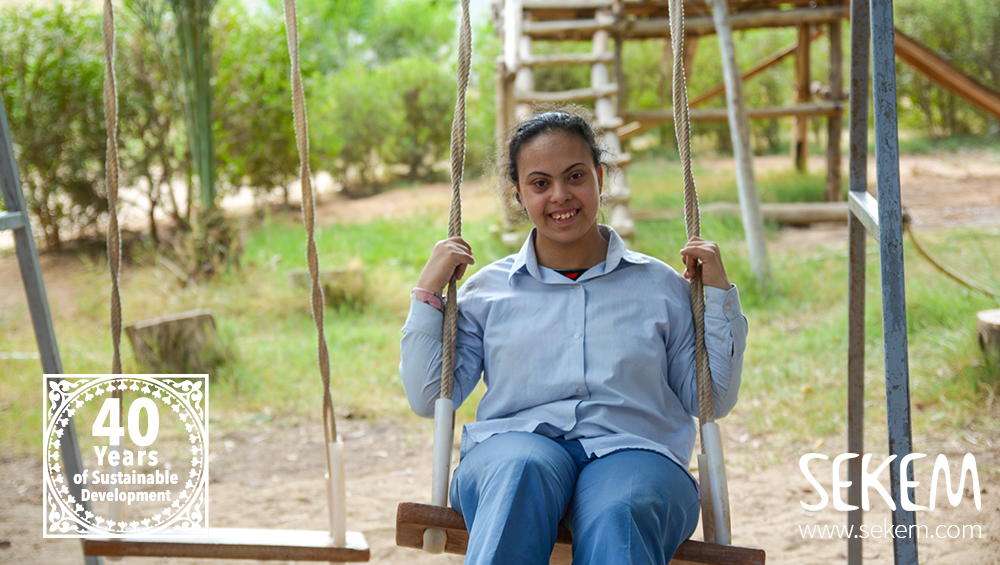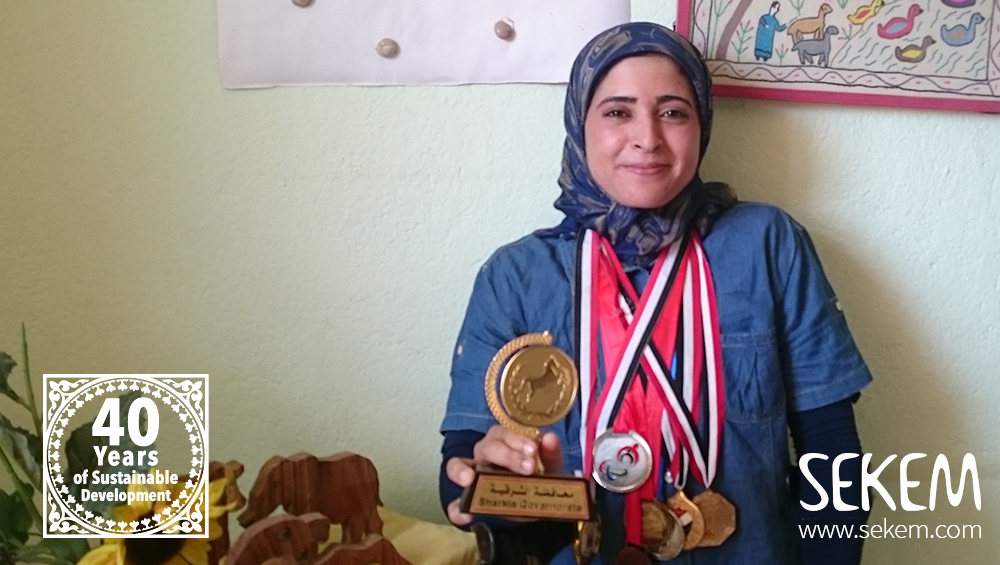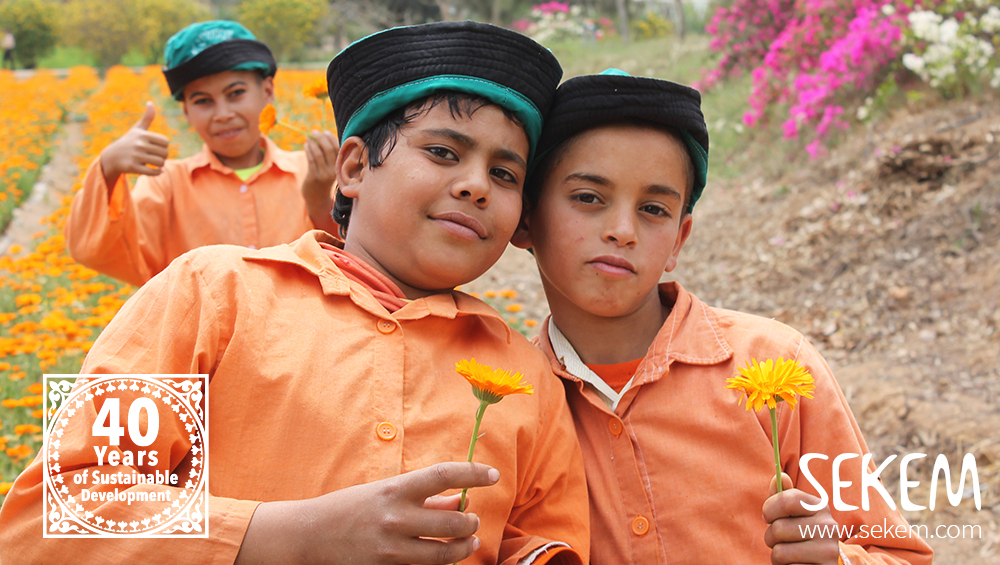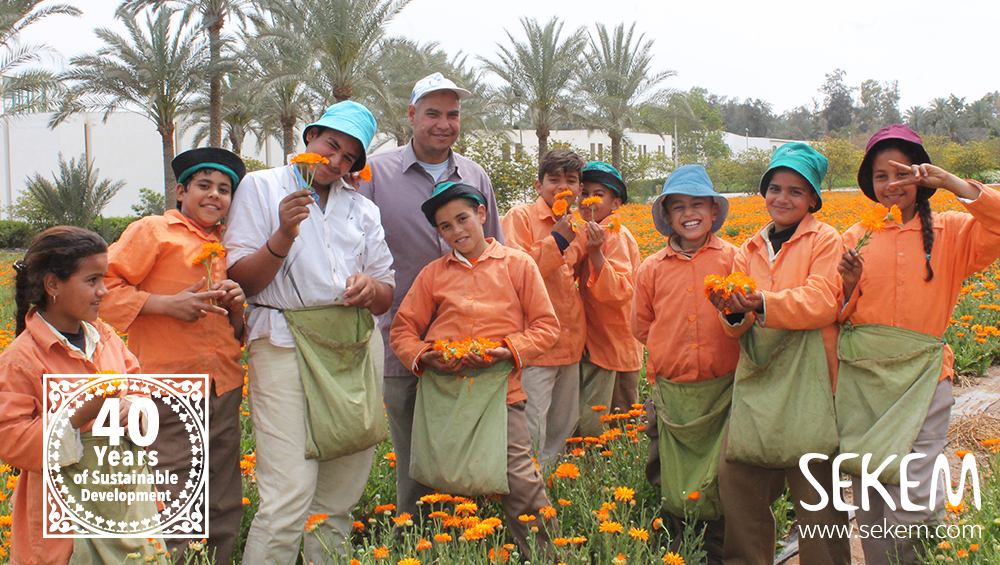“We pledge ourselves to liberate all our people from the continuing bondage of poverty, deprivation, suffering, gender and other discrimination,” said Nelson Mandela, the Nobel peace prize winner and the first black president of South Africa in the late 90’s. Mandela and others who served as leaders for freedom had cut a great road in the past through changing and building laws towards realizing more equality and democracy.
Two of the many faces of inequality are attacking children in Egypt
Inequality has many different faces. Child labor and the ignorance of the handicapped people are two of them in Egypt. In both cases, children are deprived of schooling or forced to leaving out education prematurely.

According to the Egypt Demographic and Health Survey 2014, 7 percent of children aged five to 17 years were involved in child labor – here defined as the involvement in economic activities or household chores for longer hours than are considered appropriate. The percentage is higher in rural than in urban areas. In 2016, UNESCO Egypt reported that 5.6 percent of 2.7 million illegal employed children are additionally working under hazardous conditions. The Egyptian government tries to tackle these problems. Last year, the Labor Ministry declared that over 23,000 children were saved from child labor through inspection campaigns that covered over 25,000 establishments. More than 19,000 of them were officially registered, whereas the rest operates informally.
2018: The year of those challenged with a disability in Egypt
On the other hand, an increasing unemployment rate is taking place among persons with disabilities. Handicapped people represent around 10 percent of the Egyptian society, and only 2 – 3 percent of them receive education, health care, or job opportunities, according to the Central Agency for Public Mobilization and Statistics (CAPMAS). But 2018, is a very special and promising year in this regard: 2018 was officially announced as “the year of persons challenged with a disability”. Besides the growing awareness for this challenge, a new law was introduced that shall support Egyptians with special needs. The actions guaranteed by the law are in accordance with the standards and rules of the United Nations’ Convention on the Rights of Persons with Disabilities, which Egypt had already ratified since 2008. The law, for instance, prohibits institutions to reject applications from people with disabilities – a problem that for instance, the SEKEM teacher Noura Nasser had been facing some time ago when she wished to enrol at a university.

Today, the young lady is teaching at SEKEM’s School for Children with Special Needs. In this institution, SEKEM tries to support handicapped children but also adults by different therapy methods such as handicrafts or arts in order to integrate them as equal members into the community. Noura Nasser is a wonderful example of how this approach is fruitful. The former SEKEM student does not only fulfil a responsible job but also unfolds her potential on other levels. Recently she won the gold medal in weightlifting during the national parasports’ champion.
Equality on the individual level
SEKEM’s vision to unlock the individual potential of every human being can also be perceived by the Community Education Program, the so-called Chamomile Children’s project. This program offers an alternative to child labor and is approved by the Egyptian government. Instead of refusing children who are searching for work SEKEM enrols them to the Community School where they are educated but in between do simple jobs – such as harvesting the camomile fields – in order to earn money. During all activities, they are accompanied by a social worker.

And SEKEM Initiative is also involved in the refugees topic. Hence, SEKEM’s Department of Education for Sustainable Development (ESD) recently announced holding training for teachers in public schools, which enrol children of Syrian refugees. “Teachers should be aware of the struggles those students had faced in their countries while fleeing from wars,” says Mohamed Anwar, SEKEM’s ESD-Specialist. “Such students require assistance and more support to be integrated as equal members to the Egyptian community,” he adds.
The tenth Sustainable Development Goal (SDG 10) spells reducing inequalities within and among countries – a fundamental aspect of realizing a global sustainable future. Worldwide initiatives are established and actions are taken on different levels, in order to mitigate inequalities. But still, disseminating more awareness in this regard is deeply needed especially on the individual level. Because, until the present time, worldwide inequality remained a major challenge.
The success of SEKEM as a community with equal chances for all members is strongly characterized by this individual but also a spiritual approach. “SEKEM has been created as something new out of both earthly and spiritual encounters. All religions and cultures have their place in SEKEM and we are surrounded by the good thoughts of many friends all over the world who give SEKEM spiritual energy,” the founder, Ibrahim Abouleish, once said. And like that, it is still today: SEKEM is driven by mutual understanding and equal opportunities for all members – and thereby, over the past 40 years, people have been “liberated from the bondage of poverty, deprivation, suffering, gender and other discrimination.”
Noha Hussein
SDG 4: Educating Future Generations
Chamomile Cultivation On the SEKEM Farm
Education for Sustainable Development in Slum Areas
SEKEM’s Parasports Champion: Interview with Noura Nasser

